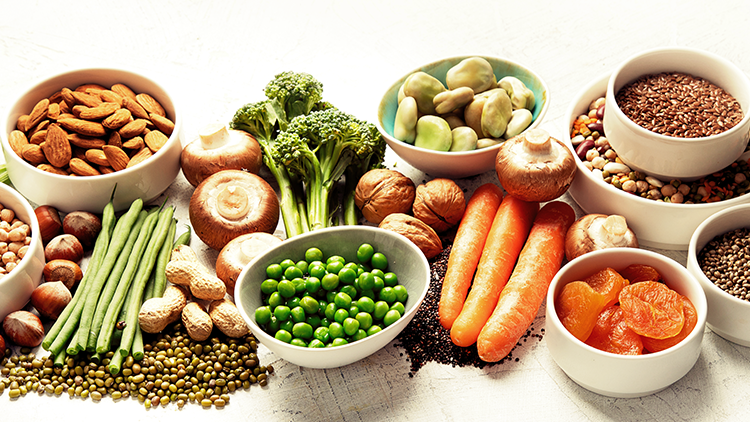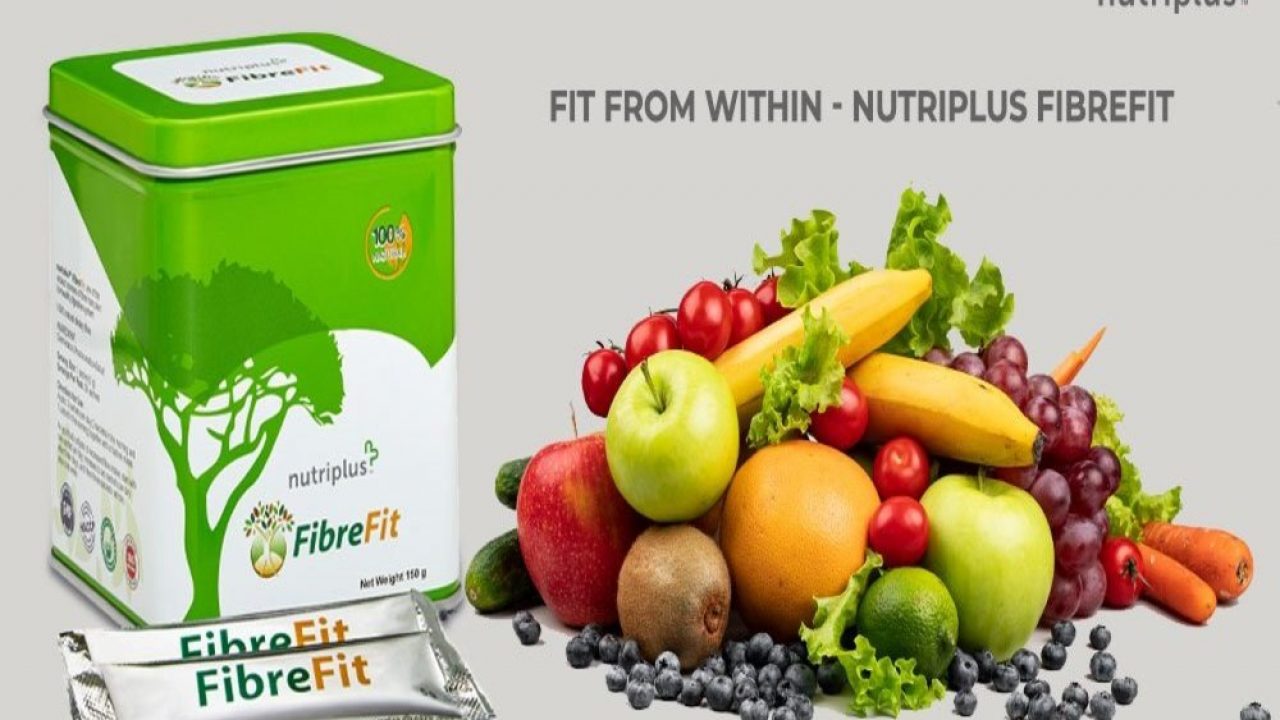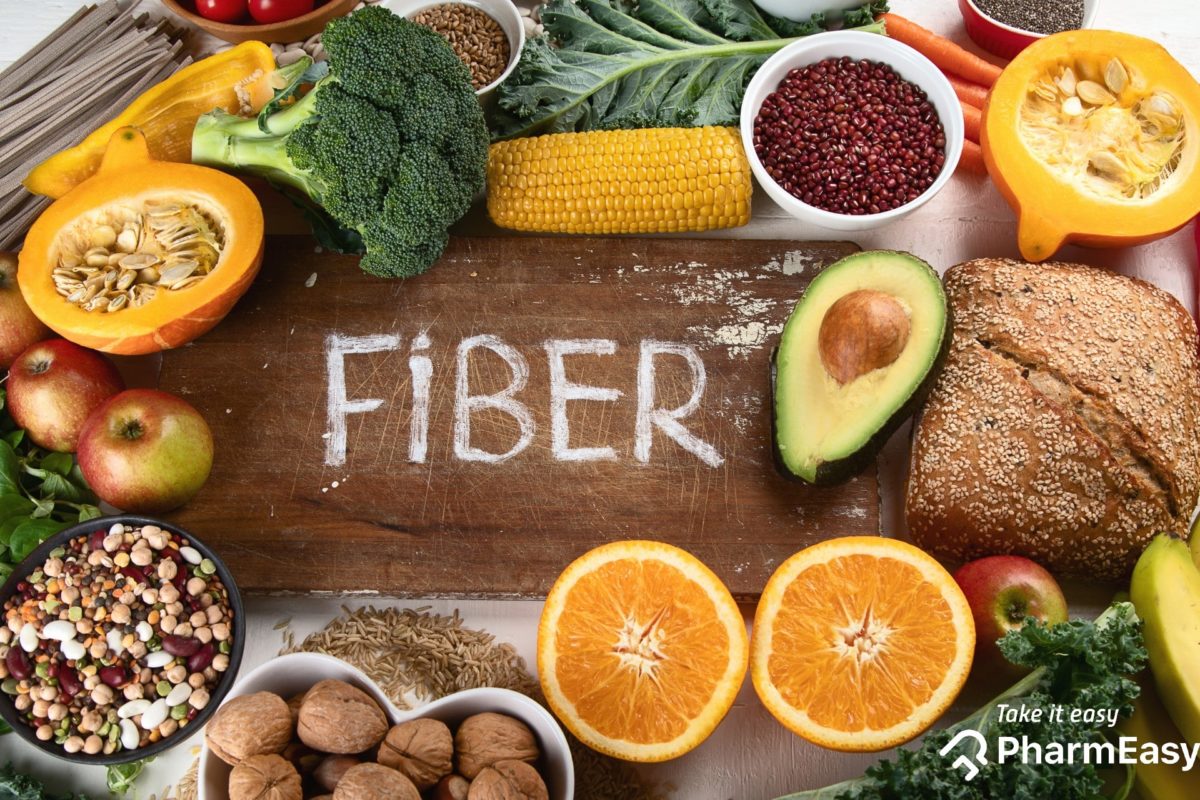When asked about the important nutrients for a healthy life, we often go with carbohydrates, proteins, vitamins and minerals etc. But most of us remain conveniently forget about fibre. Fibre is one of the important nutrients for health and is often not given the amount of respect and care that it deserves. In fact, how many of us even know about what fibre really is, why we should make it a regular part of our diet and what its benefits are? As someone whose life has significantly improved since adding more fibre to my diet, I think I am a good enough source to talk about fibre as one of the important nutrients for health. I will also tell you my secret to getting my recommended dietary allowance or RDA of fibre every day.
What is Fibre?

Simply put, fibre is just a kind of plant carbohydrate that the body cannot digest. While most kinds of carbohydrates can be broken down into sugar molecules to fuel the body, fibre cannot be converted to sugar molecules and passes through the body undigested. It helps in a number of functions in the body, including regulating the body’s use of sugar, keeping hunger and blood sugar in check as well as providing nutrients for the gut bacteria to survive.
A normal healthy adult and children require at least 20 to 30 grams of fibre per day for healthy bowel movements. However, most of us do not get the required amounts of fibre from our diet. This can be attributed to unhealthy diets that have more refined flour and carbohydrates and are lower in things like fruits and vegetables.
There are two different kinds of fibre, both of which are beneficial for health:
Soluble fibre, which dissolves in water and can help in reducing glucose levels as well as lower blood cholesterol. Food items that are rich in soluble fibre include oatmeal, nuts, lentils, apples and blueberries.
Insoluble fibre is the fibre that does not dissolve in water and can help move your food through the digestive system. It promotes healthy and regular bowel movements as well as prevents constipation. Food items with insoluble fibre include wheat, whole wheat bread, brown rice, legumes etc.
The best sources of fibre are whole grains, fresh vegetables and fruits, legumes and nuts.
Benefits of Fibre
There are many benefits to having fibre as one of the important nutrients in your diet. More and more studies have shown a correlation between a fibre rich diet and a reduced risk of diseases like heart diseases, diabetes, diverticular disease and constipation. In addition to that, fibre is essential for your gut health and over health and wellbeing. A diet that is rich in fibre allows you to have a regular and healthy bowel movement. It also keeps you full for longer, reducing hunger and snacking.
Heart diseases
A diet rich in fibre has been shown to have a reduced risk of heart disease, according to a study conducted by the Harward Institute. It has also been linked to a lower risk of metabolic syndrome, a combination of factors that increase your risk of developing cardiovascular issues and diabetes. These factors include excess weight, high blood pressure, high insulin levels, high levels of triglycerides and low levels of HDL or good cholesterol. Several studies have found a direct correlation between high fibre intake and reduced chances of these factors.
Type 2 diabetes
Fibre has been shown to be an effective tool in controlling the sudden spikes in blood sugar levels. A diet low in fibre and high in food items that can cause sudden spikes in blood sugar levels can increase your risk of type 2 diabetes.
Diverticular disease
Diverticulitis is one of the most common age-related disorders of the colon for most people who have a diet that is low in dietary fibre. A Harvard study found that male health professionals who ate a lot of fibre, particularly insoluble fibre, had a 40 per cent lower risk of diverticular issues.
Fibre and constipation
Constipation is one of the most common gastrointestinal problems in the world. A diet that is rich in fibre has been shown to relieve and prevent problems related to constipation. However, fibre found in whole grains like wheat bran and oat bran has been shown to be more effective in preventing constipation than fibre from fruits and vegetables. Experts also recommend increasing fibre intake gradually as fibre absorbs water, and you also have to increase your beverage intake.
Nutriplus FibreFit

Now, getting the RDA or Recommended Dietary Allowance of fibre just through our food can be hard sometimes. Especially with the modern lifestyle, getting healthy produce that is rich in fibre can be a hassle. That is why I use Nutriplus FibreFit to make sure that I get my daily requirement of fibre. Fibre is an important nutrient means that it is important to get your daily requirement of it. Made from Gum Acacia, Nutriplus FibreFit is an easy and convenient way of getting your daily requirement of fibre. It comes in a convenient package that can be easily used anywhere and anytime. It also does not have any flavour or odour that will change the experience of eating. Nutriplus FibreFit can be added to any meal or beverage to turn it into a fibre-filled one.
So what are you waiting for? Head to the QNET India website and get your pack today!





